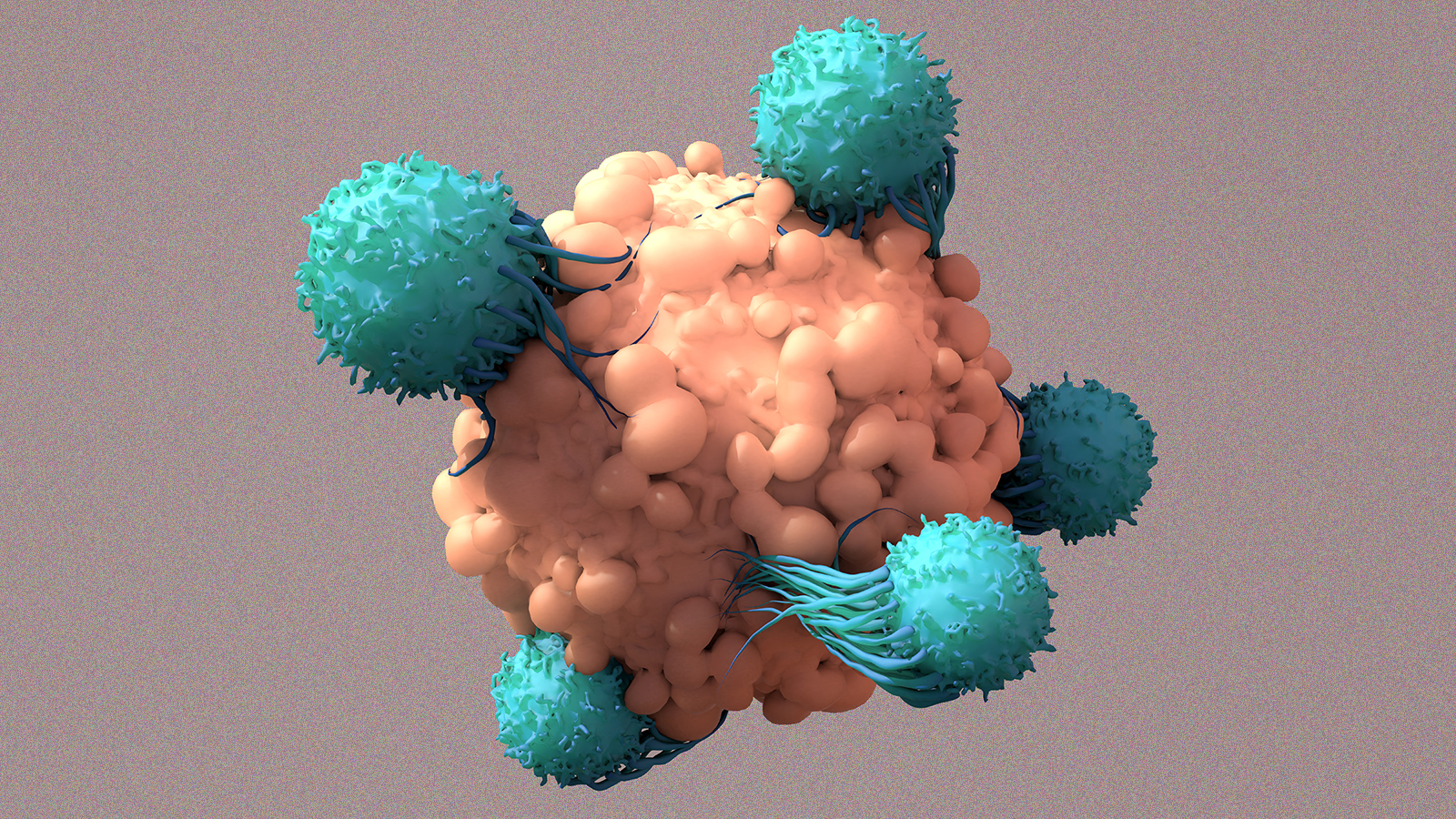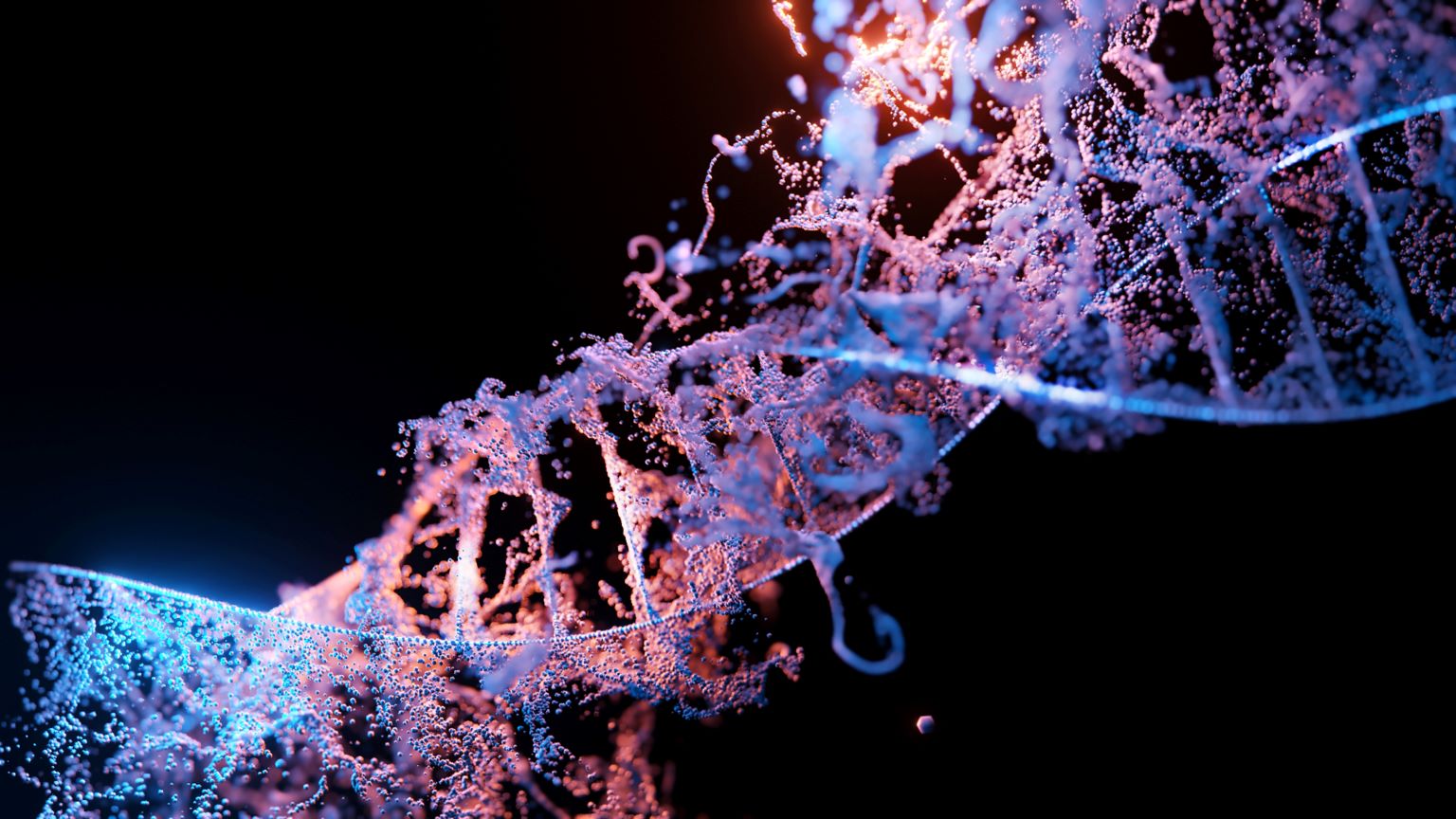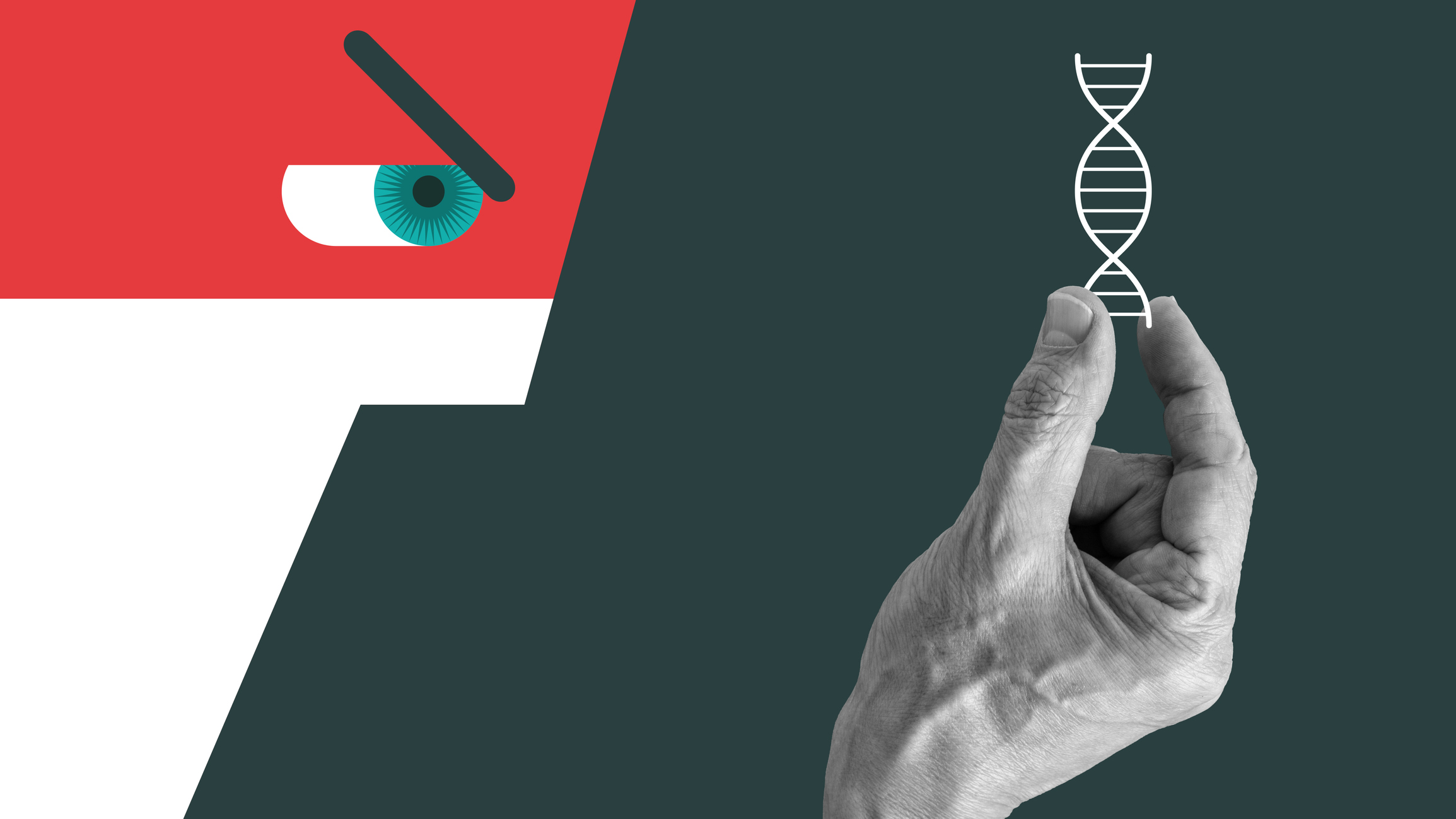- Our ability to manipulate genes can be very powerful. It has been very powerful.
- This is going to revolutionize human life.
- Would the consequences be bad? And they might be.
- Every time you monkey with the genome you are taking a chance that something will go wrong.
- The technique could be misused in horrible ways.
- When I started this research project, I've kind of had this initial feeling of what have I done.
JENNIFER DOUDNA: CRISPR gene-editing technology is a tool that scientists can use to change the letters of DNA in cells in precise ways. So I like to use the analogy of a word processor on a computer. So we have a document, you can think about the DNA in a cell, like the text of a document that has the instructions to tell the cell how to grow and divide and become a brain cell or a liver cell, or develop into an entire organism. And just like in a document, the CRISPR technology gives scientists a way to go in and edit the letters of DNA. Just like we might cut and paste text in our document or replace whole sentences, even whole paragraphs or chapters. We can now do that using the CRISPR technology in the DNA of cells. CRISPR is an acronym that actually represents a sequence of DNA letters in the genomes of cells. It's found in bacteria and it was interesting to scientists originally because it's a bacterial immune system, a way that bacteria can fight viral infection. For scientists this is sort of really a gift that allows research to proceed very quickly in terms of understanding the genetics of cells and organisms but also provides a very practical way to solve problems. In clinical medicine, the opportunity to make changes to blood cells that would cure diseases like sickle cell anemia, a disease where we've understood the genetic cause for a long time. But until now there hasn't been a way to actually think about treating patients. And now with this technology, it's possible in principle to remove stem cells that give rise to blood cells in a person's body, make edits to those cells that would correct the mutation causing a sickle cell disease and then replace those cells to essentially give a patient a new set of cells that don't have the defect. It's one thing to talk about being able to remove mutations from the human population that cause genetic disease. And I think for many people that would be a desirable thing to do. On the other hand, I think it's a very different discussion to think about using a technology like this to create enhanced human beings. People that are taller or have a certain eye color or other kinds of physical or intellectual traits that might be considered desirable. And it sort of immediately brings up sort of the the whole area of eugenics and sort of access to technology. Who gets access, who pays for it, who decides, who decides whether or not to do such a thing, should companies be allowed to offer this as a service to parents who want to do this and if so, should they be regulated in some way? There's a lot of very interesting and challenging questions, I think that go along with that.
RICHARD CLARKE: The technique could be misused in horrible ways. It could be misused for example, to create biological weapons, to create new forms of threats to human beings. Threats for which we don't have any known antidote. Or it could simply be used to create human beings of far superior capability. Not just taking genes and removing defects, but adding new super capabilities. What if in the process of that kind of gene editing, we created a caste society, where some people were genetically designed to do menial tasks and didn't have the capability of doing anything else. And other people were designed to be the rulers, with huge IQs and the capability of understanding things beyond the pale for lesser humans.
RICHARD DAWKINS: The ability to edit our own genomes is one thing we ought to worry about. I'm not sure it's so much an ethical problem as a more practical problem. What would the consequences be? Would the consequences be bad? And they might be. I think it's worth noticing that long before CRISPR, long before we became capable of editing our genomes in any way, we have been editing the genomes of domestic animals and plants by artificial selection, not artificial mutation, which is what we're now talking about, but artificial selection. When you think that a pekinese is a wolf, a genetically modified wolf. Modified not by directly manipulating genes, but by choosing for breeding individuals who have certain characteristics, for example, small snub nose, et cetera, and making a wolf turn into a pekinese. Well, we've been doing that very successfully with domestic animals like dogs, cows, domestic plants, like maize, for a long time. We've never done that to humans or hardly at all, and Hitler tried it but it's never really been properly done with humans, I'm glad to say. So if we've never done that with humans with the easy way, which is artificial selection, it's not obvious why we would suddenly start doing it the difficult way, which is by direct genetic manipulation. There doesn't seem to be integrate eagerness to do it, over the last few centuries anyway.
STEVEN PINKER: People think that introducing traits into offspring is a form of eugenics and is on a slippery slide to Nazi-ism. I happen to think that that is a bogus ethical argument but it is by far the majority ethical argument. And in many countries, genetic enhancement is or will be illegal. And it's gonna take a huge force to overcome that. Just as cloning is illegal in virtually every country and when Dolly the sheep was cloned in 1997, there were confident predictions that there's nothing you could do to stop human cloning. It was just around the corner. And here we are almost 20 years later and it has not happened. Also the task of engineering high intelligence is turning out to be a lot harder than one might've thought. In the late nineties, it was thought, well, sooner or later we'll find some high IQ genes. They'll give you three or four points, you put in a handful of them and you get a much smarter baby. There was going to be the gene for musical talent and the gene for athletic coordination. We have every reason to believe that those traits are substantially heritable. We've known that for decades just because of twin and adoption studies. On the other hand, we also know that the genes responsible are going to... Each one of them is gonna have an incy wincy effect. And there are dozens, hundreds, maybe thousands of them. So making your child smart is not a question of putting in one high IQ gene. It may be a question of putting in a hundred genes or a thousand genes. Every time you monkey with the genome you are taking a chance that something will go wrong. Also those genes, the ones that we have identified and we've made enormous progress in, just a few years ago there was not a single gene you could point to that had a positive effect on intelligence. Now we can point to a few of them that have incy wincy effects, a third of an IQ point. But on the other hand, we identify them by their correlations with intelligence. We have no idea what they do. I mean, if you find that any of those genes is actually expressed in the brain then you've had a really good day as a scientist but to know what the totality of their effects are, positive and negative, is something that we're not gonna know for a long time, if ever, when you're talking about hundreds of thousands of genes. How do we know that one of those genes that raises your IQ by a third of a point, doesn't also increase your chance of epilepsy or schizophrenia or brain cancer. Would you think for that matter that parents are going to be willing to take such chances with the biological integrity of their children, that in exchange for an increase of an IQ point or two, they're going to take some unknown risk of making the child schizophrenic or bipolar or some other disease that we may not know of, whose probabilities we don't know. Not so clear that they will.
SIDDHARTHA MUKHERJEE: The road to eugenics was paved with the best intentions and it was a series of, you can almost see the world tipping towards horror. Step by step by step. It seemed like one iterative step didn't seem that much. And yet, as you've accumulated all of these very soon you went from in Nazi Germany, in particular, starting with trying to eliminate or sterilize those who were somehow physically different from others. All the way, including folks who are deaf, folks who had various neurological diseases and then sort of marched inexorably towards other forms of identity, including obviously, Jews, gypsies, homosexuals, and so forth. So it's worthwhile remembering that that progression that occurred in the 1930s was perceived by citizens at that time as part of a progression. So it's incredibly important to remember that history when we step, as we are going to, as we're stepping towards the genetic modification of human embryos or even to some extent the genetic modification of other animals or plants, we have to remember that it seems as if there's a progression but all of a sudden, by the time from the beginning till the end, you may land up in a very different place. It's important also not to throw, as we enter new genetic technologies, not to throw the baby out with the genetic bathwater. I mean, it's important to remember that our ability to manipulate genes can be very powerful. It has been very powerful.
CLARKE: This is going to revolutionize human life. It's already beginning. It's going to mean that all of the genetic defects that have caused so much pain and suffering for people for millions of years, all of that could potentially be removed. So why does the great woman who invented this wake up in the middle of the night worrying about it.
DOUDNA: When I started this research project, we were certainly not thinking about a technology that would allow alteration of human evolution or anything of that nature. And over the last few years, as this technology has begun to be deployed globally for different applications, I've found that I have gone from thinking about it initially, just with sort of almost wide-eyed excitement thinking about all the opportunities that this offers, to realizing that there was real risk and that we really needed, we meaning the scientific community and really frankly the human community, needed to be aware of this and discussing it. And one of the things that sort of brought that to the forefront of my mind was a dream that I had, fairly early on, in which I walked into a room and a colleague of mine said to me, "Jennifer, I'd like you to explain the CRISPR technology to a friend." And he brought me into a room and a person was sitting with their back to me. And as they turned around, I realized with sort of a horror that it was Hitler. And it was actually Hitler with a sort of a pig nose and it almost looked like a chimeric pig-human sort of creature. And it sounds funny in a way to relate that image, but in the dream it was a terrifying thing. And I really felt real, just stone cold fear in the dream and sort of woke up from that dream with a start and realized, I've kind of had this initial feeling of what have I done. And that was really one of the things that motivated me to get out of the lab and start talking to people more broadly about the technology, about its capabilities, about the great things about it, but also about things that really required really a deep thought and careful consideration and regulation. I think with any new technology, one always has to try to get the balance right. On the one hand, we of course wanna see technologies and science in general being used to solve real world problems, real human problems. But on the other hand, we want to ensure that that progress is responsible progress, that we are working together with the stakeholders to ensure that there's not an unintended or even a negative intended consequence of the use of these technologies. How to do that is a big challenge.






